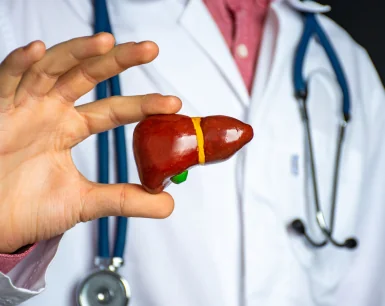If you’ve had gastric sleeve surgery and suddenly find yourself dealing with excessive saliva, a bubbling sensation, or even vomiting up a frothy foam, you’re not alone. These symptoms, commonly called “foamies,” can be a confusing and uncomfortable part of the recovery process. But don’t worry—there are ways to prevent and manage them so you can return to feeling your best.
What Are Foamies After Gastric Sleeve?
“Foamies” refer to the build-up of frothy, foamy saliva that some people experience after gastric sleeve surgery. It often occurs when food gets stuck in the smaller stomach pouch or oesophagus, causing the body to produce excess mucus and saliva to try to push it through.
Preventing and Managing ‘Foamies’ after Gastric Sleeve Surgery is not uncommon and tends to happen more frequently in the early months post-surgery. It can feel like excessive belching, gagging, or even mild regurgitation. It may also come with discomfort in the chest, nausea, and a general sense that something just isn’t going down right.
The term “foamies” might sound light-hearted, but the experience can be anything but. It can be both distressing and inconvenient, especially when you’re trying to stick to your recovery and weight loss plan. The good news? Foamies are preventable with some mindful adjustments.
What Causes Gastric Sleeve Foamies?
There are a few main culprits behind gastric sleeve foamies:
Eating Too Quickly
After surgery, your new stomach is much smaller, and eating too fast can cause food to back up. Chewing thoroughly and pacing yourself during meals is crucial. When food isn’t given enough time to move down the digestive tract, the body compensates by generating saliva to help it along, leading to the infamous foamy spit-up.
Not Chewing Food Well Enough
Breaking food down into small, manageable pieces is important. Poorly chewed food can become lodged, triggering foam production. Your new digestive system isn’t as forgiving as it once was, so taking the time to properly chew your food is a key step in preventing discomfort.
Overeating
Portion control is key. Overeating puts pressure on the stomach pouch and may force partially digested food back up, leading to foamies. The pouch simply can’t handle the same amount of food you may have been used to before surgery, and ignoring fullness cues is one of the biggest foamie triggers.
Eating Dry or Dense Foods
Foods like bread, rice, or tough meat can be particularly problematic. These foods may clump or expand, making them harder to pass through the digestive system. Bread, for instance, can absorb saliva and stomach fluids, forming a gummy mass that can easily block the small stomach exit.
Lying Down Right After Eating
Gravity helps move food along. If you lie down immediately after a meal, you may interfere with digestion and increase the chances of foamies. Sitting upright for at least 30 minutes post-meal is ideal.
How to Prevent Foamies after any bariatric surgery?
Foamies might sound daunting, but a few lifestyle tweaks can make a big difference:
Eat Slowly and Mindfully
Put your fork down between bites, and give yourself 20 to 30 minutes to finish a meal. Eating slowly allows your stomach to signal when it’s full. Slow, deliberate eating is not just better for digestion, but also helps you truly enjoy your meals.
Chew Thoroughly
Make a habit of chewing each bite 20–30 times. This helps avoid large chunks of food that could block the smaller stomach opening. Consider softening tougher foods with sauces or broth if needed.
Stick to Soft, Moist Foods Early On
Especially in the first few months post-surgery, focus on soft, easy-to-digest foods. Moist, well-cooked vegetables, tender proteins, and broths are great options. Foods with high moisture content are less likely to clog your digestive pathway.
Hydrate Between Meals, Not During
Drinking fluids during meals can cause your stomach to fill up too quickly. Instead, sip water 30 minutes before or after eating. This also helps reduce bloating and aids nutrient absorption.
Listen to Your Body
If you feel pressure, nausea, or discomfort, stop eating. Pushing past this point can cause foamies and even vomiting. Learn to trust your new hunger and fullness cues—they may feel different, but they’re reliable.
What to Do If You Get Foamies after Weight Loss Surgery
Despite your best efforts, foamies might still happen. Here’s what you can do:
Stay Upright: Sit or stand to help gravity move food along. Walking a few steps may even help.
Relax and Breathe: Anxiety can make things worse. Take slow, deep breaths to calm your nervous system.
Avoid Eating More: Don’t try to “push through” the foamies by eating more. Give your stomach time to settle.
Sip Warm Water or Herbal Tea: A small amount of warm liquid might help soothe your oesophagus and clear minor blockages.
Do Not Panic: It can feel alarming, but remaining calm helps your body work through the episode more efficiently.
When to See a Doctor
Occasional foamies aren’t usually cause for alarm, but if you’re experiencing them regularly, it may be time to get checked out. Repeated episodes may suggest:
- Food intolerance
- A narrowing (stricture) of the stomach or oesophagus
- An underlying digestive issue
Your bariatric team might recommend tests such as an upper GI endoscopy or a barium swallow to check for physical blockages or abnormalities. Early intervention can prevent complications and keep your recovery on track.
Practical Meal Tips from Phoenix Health to Avoid Foamies
- Use a timer while eating to keep your pace steady.
- Cut food into tiny pieces before putting it into your mouth.
- Avoid carbonated drinks, which can increase bloating and discomfort.
- Keep a food journal to track meals and note which ones cause discomfort.
- Stick to your dietitian’s plan, especially during the early recovery phases.
Foamies after gastric sleeve surgery can feel unsettling, but they’re usually a sign that your body is still adjusting. With a bit of patience, mindful eating, and the right bariatric dietician support, you can manage and even prevent these episodes altogether. Always , remember , you’re not alone in this journey. Many others have experienced the same thing and come through it feeling stronger and healthier. Be kind to yourself, stay informed, and reach out to your bariatric team when needed. You’ve got the tools to succeed, and you’ve got this!




